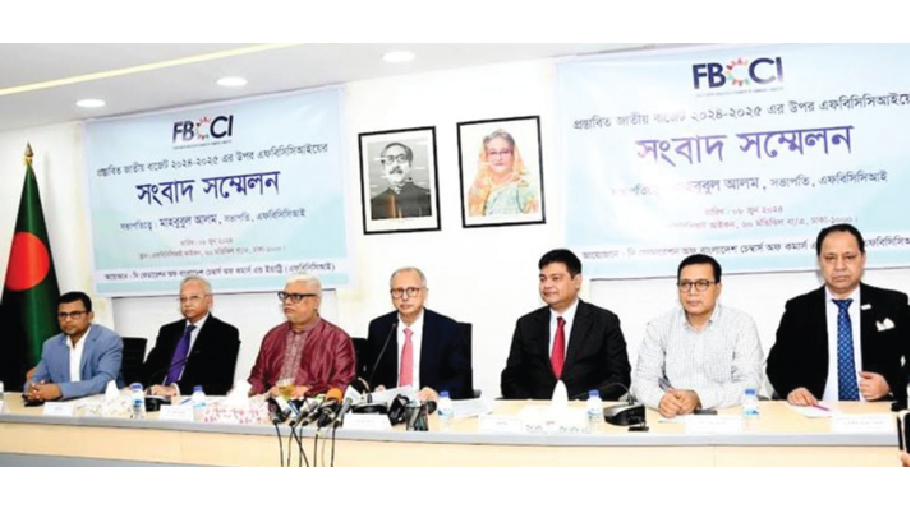Public-private partnership imperative for budget implementation:FBCCI

Terming the proposed budget for fiscal year 2024-14 (FY25) practical and implementable, Federation of Bangladesh Chambers of Commerce and Industry (FBCCI) president Mahbubul Alam on Saturday said the public and private partnership should have to be beefed up to ensure successful implementation of the budget.
Mahbub, however, stressed ensuring good governance and strict monitoring to face the challenges of budget implementation.
The FBCCI President extended thanks to the Prime Minister, the Finance Minister and the Awami League government for placing a Taka 7,97,000 crore budget for FY25 at the Jatiya Sangsad on June 6.
Mahbubul, the chief of the country’s apex trade body, however, said that meeting the fiscal target for keeping inflation within 6.5 percent and attaining Taka 4.80 lakh crore revenue collection target by the National Board of Revenue (NBR) would be major challenges before the government.
The FBCCI president said this while addressing a press conference on the proposed budget for FY25 held at the FBCCI Icon in the capital’s Motijheel area.
FBCCI senior vice president Md Amin Helaly, DCCI president Ashraf Ahmed, BKMEA executive president Mohammad Hatem and senior leaders of the FBCCI were present on the occasion.
The FBCCI chief thanked the government for delivering such a welfare-oriented and business friendly budget prioritizing the national interest and development despite various crises, limitations and adversities under the current global economic situation.
Referring to the government’s target of containing inflation at 6.5 percent in the next fiscal despite the general point to point inflation reaching 9.89 percent in May, he said, “I think attaining target through reducing inflation will be a vast challenge,”
When asked how the budget would be implemented despite the major challenges of containing inflation and huge revenue mobilization, the FBCCI chief said, “Practically, the government will be able to implement the budget since it’s not an ambitious one. We’re not advocating in favour of the government or against the government. Rather, we act as a bridge between the government and the private sector,” he added.
Replying to another question, he said that the coverage of the social safety nets is being widened alongside other government measures which would eventually help reduce the inflation rate.
Noting that the target of borrowing Taka 1,37,500 crore from the banking system in the next fiscal year might deter the private sector credit flow, he said this could also hinder the investment situation and employment generation.
Mahbubul said bank borrowing is a universal trend in all the countries, but excess trend of bank borrowings might lead the private sector to suffer.
In this regard, he opined that the government could go for seeking long-term financing from the capital market since the cost of funds has increased mostly due to the devaluation of the exchange rate.




